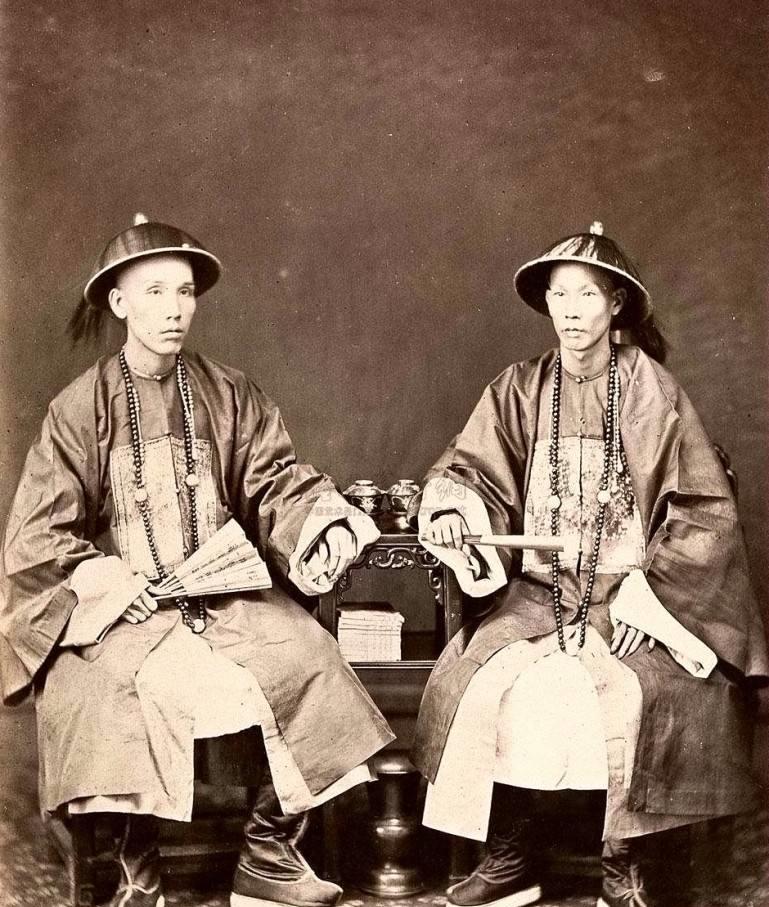Many of the Qing Dynasty officials were from the Hanlin Academy. For those who are new to the official field, being able to mix with the identity of Hanlin should be said to be the supreme glory. On the one hand, it can be recognized by the intellectual circles of the times, and on the other hand, it can be appreciated and favored by the emperor.

However, in contrast, the income of hanlins is extremely disproportionate to their status, and people are often called "poor hanlin". In the Qing Dynasty's Feng Lu system, the annual salary of the Seven Pin Jingguan was 45 taels. Qianlong's sympathetic life for the Beijing officials was stretched thin, so he paid them double salaries every year, and paid them some grain, which added up to only about one hundred and two taels. But a QipinJingguan who is very good at living a life will spend more than three hundred taels a year. In this way, a Qipinjing official owes more than two hundred taels of debt every year, and becoming an official has become a money-losing transaction.
As a result, the xiaojing officials used power to obtain gray income. However, the Jingguan in the Qingshui Yamen like Hanlin had very limited power resources at his disposal, but there was always a way to think about it. In the middle and late Qing Dynasty, Jingguan ran relations for foreign officials (local officials), found ways, settled fees and running errands. Many people rely on local supply, but also live a different wonderful. Although they still kept crying in their mouths and poems, they unconsciously cried out the "taste of happiness".
While the Xiaojing officials were worried about their livelihood, the imperial court was also consciously or unconsciously solving their livelihood difficulties. The political system of the Qing Dynasty provided a conduit for the Beijing officials, especially the Hanlins, to get rid of poverty, that is, to send the Hanlins to the localities to handle official affairs. Although they only played a small role in the capital, they were the ones who were ordered by the emperor when they arrived in the place. Those magistrates did not dare to neglect the "small roles" from the capital city at all, and even if they did not ask them to speak well for themselves after they returned, they must avoid their disadvantage after returning to Beijing.
The Beijing officials all hoped to get such an opportunity to go on a business trip and make a windfall. Most of the envoys sent by the imperial court to Hanlin were the main examiners of the township examination, and the state attached great importance to this work, so the treatment given to the chief examiner was quite generous. As the main examiner, you can first receive part of the travel fee from the household department, which is suitable for locality and has different standards. For example, in the third year of Qianlong (1738), the road fee standards of each province were stipulated: 800 taels in Yunnan, 700 taels in Guizhou, 600 taels in Sichuan, Guangdong, Guangxi, Fujian, and Hunan.
In the sixth year of Qianlong, it was also stipulated that the household department would first give each person 200 taels of silver. The examiners travel, are provided by the stations along the way, and do not need to pay their own money, so the travel expenses issued by the imperial court basically enter the personal pockets of the examiners. After the end of the township examination, the magistrate will also give the examiner a valuable "hard fee" according to the rules, which will often make a poor Hanlin "get rich" overnight. In addition, there are gray income such as meet and greet gifts for the middle lifters. In addition, as the chief examiner selected by the emperor's orders, it is not only an honor, but also can become the "seat teacher" of these people, not only has money to collect, but also can establish potential contacts in the official field, which can be described as a lot of success.